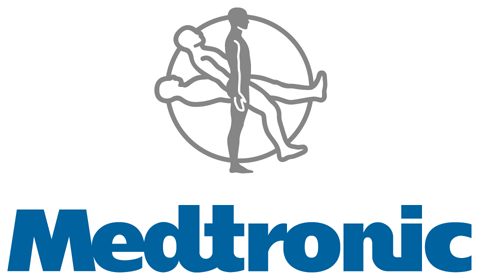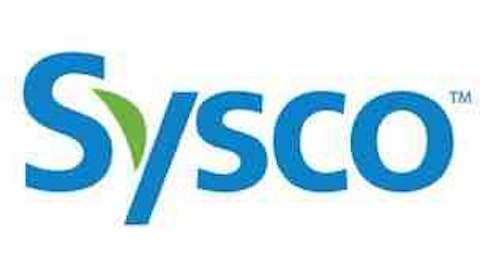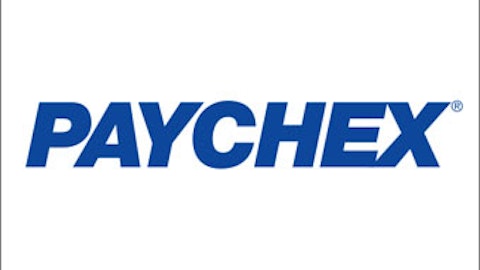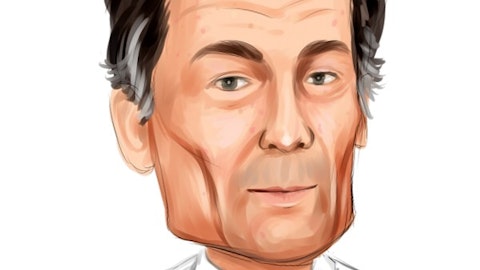Several stocks of medical device and supplies makers have been known as dividend growth plays. Two examples are the S&P 500 dividend aristocrats Medtronic Inc (NYSE:MDT), which has increased dividends for 35 consecutive years, and Becton, Dickinson and Company (NYSE:BDX), which has raised payouts for 40 years in a row. The former has seen its stock price increase 32% over the past year alone, while the latter’s stock price has remained flat over the past year. Over the past five years, Medtronic boosted its dividend payout at a faster rate than Becton Dickinson. Currently, it is also paying a higher dividend yield than Becton Dickinson (2.6% for the former versus 2.4% for the latter). Given these considerations, is Medtronic a better dividend play for the next five years?
Based on the past performance, likely it is not. Over the very long run, Becton Dickinson outperformed Medtronic by a significant margin of excess total returns. Becton Dickinson’s stock also beat Medtronic Inc (NYSE:MDT) based on the five- and ten-year total returns. A decade ago, Medtronic had a dividend yield of 0.5%, while Becton Dickinson had a yield of 1.4%. Over the following ten years, Becton Dickinson grew its dividends at a faster rate than Medtronic (16.4% for the former versus 13.2% for the latter). It also produced a higher total return over the same period, exceeding the total return of Medtronic by a large margin of more than 10% per year. Despite a lower dividend growth than Medtronic’s over the past five years, Becton Dickinson again outperformed Medtronic based on the total returns over the same period. It generated a total return averaging 1.2% per year over the past half decade, compared to a total return of negative 3.4% per year for Medtronic.
However, what about the next five years? Assuming constant stock prices and dividend growth averaging as much as it did over the past five years, Medtronic should have a higher yield on cost in five years. For example, boosting dividends at a rate of 17.2% for the next five years, Medtronic will have a yield on original cost (its current share price) of 6.1%. Becton Dickinson’s yield on cost in five years will be 4.3%, assuming that the company’s dividend will grow at an average rate of 12% per year for the next five years. However, if assumed that over the next five years dividends would grow annually according to the latest round of dividend hikes—7.2% for Medtronic and 9.8% for Becton Dickinson—the two stocks would have a nearly identical yield on cost in five years. Both companies have low dividend payout ratios: Medtronic’s is 34%, while Becton Dickinson’s is 33%.
Still, capital appreciation matters and, on that basis, Becton Dickinson (NYSE:BDX) has fared much better. For example, Becton Dickinson’s past outperformance relative to Medtronic’s total returns could be attributed to its higher EPS growth rates over the past five and ten years. Over the past five years, Becton Dickinson’s EPS grew at an average rate of 10.8% per year, compared to Medtronic’s EPS growth of about 6.0% per year. Both companies were undervalued relative to their respective historic average P/Es.
Looking forward, Becton Dickinson is expected to have a marginally higher annual EPS growth for the next five years. It also has a slightly higher return on invested capital. In addition, both companies continue to trade at discounts to their industries and historical P/E ratios, representing attractive value plays. Based on a forward P/E, Medtronic’s discount to the medical equipment industry is 32% and to its own five-year average P/E is 26%. On the same basis, Becton Dickinson’s discount to the medical supplies industry is 13.5% and to its own five-year average P/E is 17%.
However, Becton Dickinson faces a bumpy road ahead, as the rising costs and a stronger dollar hurt the company’s bottom line. Due to these effects, the company has already lowered its fiscal year 2012 guidance. Last quarter, Medtronic reported strong, broad-based sales growth across the company’s businesses and geographies, with a particularly robust demand in emerging markets, which represented 11% of the company’s revenues last quarter. While Medtronic’s sales and earnings were also hurt by the firmer dollar, the company is currently growing its top and bottom lines at higher rates than Becton Dickinson. Its sales prospects are improved given that the company recently received FDA approvals for several new and innovative pacemaker/defibrillator products. It has also launched new cardiovascular products that could bolster sales. The population trends in the U.S. (e.g. an aging Baby-Boom generation) bode well for the company’s sales in the medium term. Both companies have been propping up their respective stock prices through share repurchases. However, Becton Dickinson issued bonds to finance its share buyback plans, which has caused its balance sheet position to deteriorate.
All in all, Medtronic Inc (NYSE:MDT) looks likely poised to benefit from strong growth and low valuations more than Becton Dickinson and Co (NYSE:BDX). This enthusiasm about the company’s outlook is shared by several relevant fund managers. For example, Ken Fisher, Ralph V. Whitworth (Relational Investors), and Ric Dilon (Diamond Hill Capital—see its top picks) had more than $200 million invested in the company at the end of the first quarter. On the other hand, fund manager David Blood and former U.S. Vice-president Al Gore (Generation Investment Management—check out its top holdings) had more than $270 million invested in Becton Dickinson at the end of the same quarter. Billionaire and value investor Paul Tudor Jones purchased a fresh new position in the company’s stock in the first quarter.





